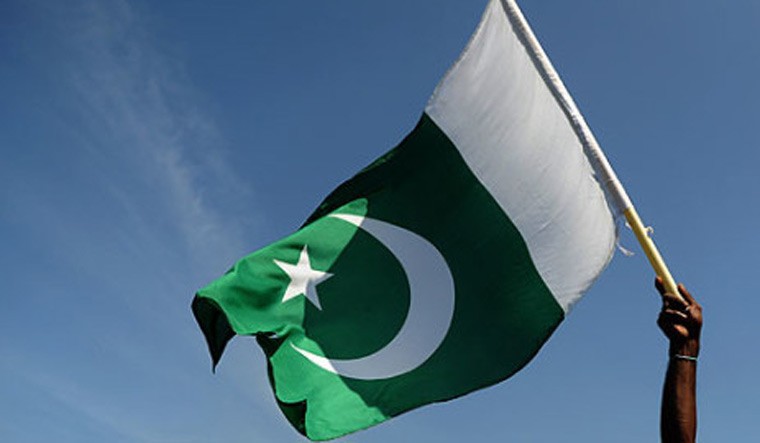Pakistan’s Second-Class Qadiani Citizens

Reports emerged on the 22nd of August to the effect that sixteen graves belonging to members of the minority Ahmadiyya community had been desecrated by unknown persons in Faisalabad, Punjab, approximately 150km away from Lahore. Ahmadiyya spokesperson Aamir Mahmood stated that the gravestones in a walled communal graveyard had been desecrated for the first time in 75 years. Mahmood claimed that the incident had been provoked by sermons given by Muslim clerics in the area who objected to the use of Islamic verses on the gravestones. This objection is enabled by provisions in the Pakistan Penal Code and has become the justification used in a number of cases where the Ahmadi community has been attacked.
In 1974, Pakistan amended its Constitution in a way that effectively declared Ahmadis to be non-Muslims. The Ahmadi faith in most respects follows the teachings of the Hanafi school, the most widely followed school of Islamic jurisprudence. The difference between the Ahmadi faith and other Muslim schools is the Ahmadi’s treatment of Mirza Ghulam Ahmed as a Mahdi or prophet of Allah. Most Muslims interpret a verse in the Quran to mean that Muhammad is the final prophet of Allah. As a result of this, many Muslim clerics consider the entire Ahmadi faith to be blasphemous and a rejection of the Quran.
Section 298-C of the Pakistan Penal Code elevates the discrimination against Ahmadiyyas into law. It prohibits Qadianis (Ahmadiyyas) from calling themselves Muslim or propagating their faith. The section prohibits Ahmadiyyas from representing themselves as Muslims directly or indirectly, inviting others to practice or accept their religion and concludes with a deliberately overbroad clause which prohibits them from any action which “in any other manner whatsoever outrages the religious feelings of Muslims”.
This particular section, 298-C is commonly cited when blasphemy cases are filed against Ahmadiyyas, which is an increasingly common occurrence. The Khatm-E-Nabuwwat Lawyers Forum specializes in filing cases against Ahmadiyas accusing them of blasphemy. This trend creates extreme risks for members of the Ahmadi community as the charge carries a death penalty.
At the center of this legal persecution is a man named Hassan Muawiya, a religious cleric based in Lahore. Muawiya works with the Khatm-E-Nabuwwat Forum to pursue cases of blasphemy against Ahmadis. Muawiya is considered by researcher Rabia Mahmood to be Pakistan’s leading anti-Ahmadi campaigner and is named as either a witness or a complainant in many ongoing cases. The prosecution of these cases is often accompanied by overt intimidation. The prosecution often uses threatening language and gestures and places pressure on the judges. Many judges have been murdered for delivering “Not Guilty” verdicts and this knowledge weighs heavily, especially at the lower levels of the judiciary where the judges tend to be less well-trained and do not have access to the protection that senior members of the appellate judiciary would.
For his part, Hassan Muawiya has insisted that he is merely following the law as it written and has no intention to harass anyone. Speaking through his lawyer he stated that he had no objection to Ahmadis as long as they “remained within their limits”, but “when you cut my nose, then you can expect me to cut your nose as well”. Muawiya’s attitude exposes the reality underlying the fate of Ahmadis in Pakistan. He is not wrong in claiming that he has proceeded strictly in accordance with the law when filing an avalanche of cases against Ahmadiyyas.
In reality, the law itself tends to outlaw the Ahmadi faith and renders their existence conditional on the sufferance of the least tolerant Muslims. The framing of existing legislation allows any Muslim to generate a complaint if they feel that their religious feelings have been outraged by Ahmadis. This is an entirely subjective standard which is not very well suited to criminal law and encourages those who desire to target the community or abuse the legal system to settle personal scores.
As it currently stands, the Pakistani legal system has two key dangers for Ahmadis. While S. 298-C is an overbroad section which practically invites parties like Muawiya to generate complaints and take offence, it has the saving grace of prescribing penalties that are not out of line with other offences. On the other hand, Ahmadis are routinely prosecuted for blasphemy which is very precisely defined but carries extremely harsh sentences including the death penalty. Many Ahmadis have been falsely accused of blasphemy and executed.
The Ahmadi community in Pakistan lives as second-class citizens, their right to propagate and practice their religion is legally denied in Pakistan. Most in the community are resigned to this fate but unfortunately even peaceful existence seems a distant dream when legal forums and mobs of attackers alike are mobilized to target the community and threaten their lives and livelihoods. The Pakistani legal system is in need of urgent reform to protect the safety and dignity of the Ahmadi community.






